[PHILOSOPHY] In Defense of Cultural Conservatism - Part I
Modernism has played its part - shock art is no longer outrageous and postmodernism has nothing left to deconstruct. Culture, in the longer term, can only be safeguarded by responsible management: respect for craftsmanship, respect for traditions and the pursuit of beauty. The conservative line is the only one actively trying to defend itself against cultural collapse.
A basic premise for a healthy and cultivated society is that the public respects a traditional cultural heritage and that this is perceived as both an individual and collective concern. I will in this two part text present an aesthetic defense of cultural conservatism, and place it within the contemporary cultural and political landscape.
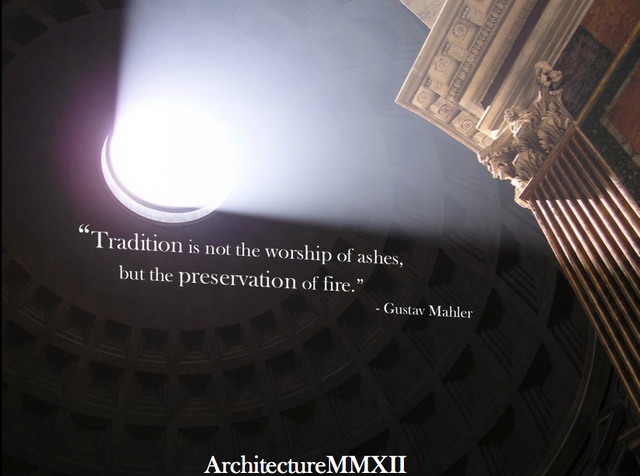
A major challenge for cultural conservatism lies in regaining its unpolitical essence, which calls for a humanism liberated from party programs and government intrigues. A defense of traditional culture must include a consistent critique of modernism - not as an epoch within the history of art- but as a collective concept for the perception of the absolute necessity of 'progress' and the idea of the superiority of modernity. From a cultural conservative point of view this appears to be a threat to bourgeois institutions and the foundation of humanism and cultivation.
Skepticism against tradition
Progressivism, in one way or another, controls the aesthetic and intellectual practice of modernism, and its aberrations have led education and culture policy astray. In its entirety, modernism and its successors, as an epoch within art and culture, is characterized by a negative point of departure: it does not resemble previous epochs.
The common denominator of the current trends in what we perceive as 'contemporary culture' - cultural radicalism in the humanities, relativism in social sciences, postmodernism in pop culture, an utopian multicultural policy, avant-garde in art - is about a decline in tradition. It's based on a naive belief in the future that I suspect is imported from the natural sciences.
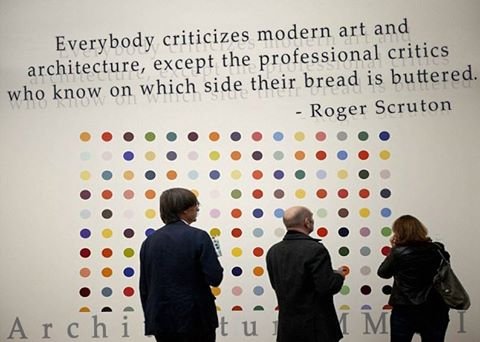
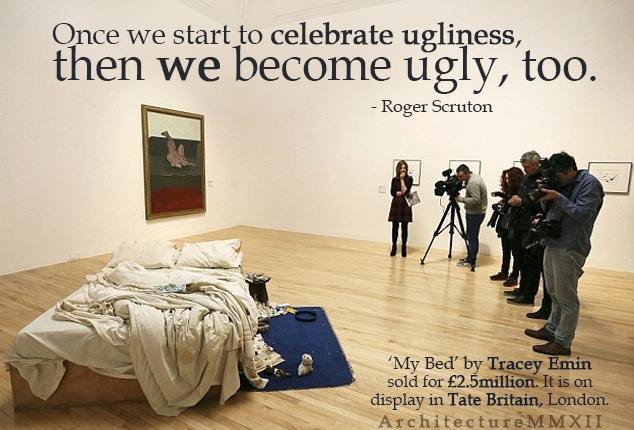
Advances in natural science are made based on the principle of falsification, where established theories are challenged through experiments and rejected if a new theory is better able to explain the investigated relationship. That is why today's doctors don't have to study Andreas Vesalius' anatomical teachings or the medieval teachings about body fluids in their education. Natural science has - rightly - an inherent skepticism against tradition.
In culture, it is different: falsifiability is unlike in natural science easy to accomplish since the falsification settles for an unjustified opinion (and it can't be justified). As a consequence, cultural progress is not necessarily related to the rejection of the cultural tradition. There are no eternal theories, but there is timeless art.
Individualism is the principle governing modernist art: it is the one principle which controls the value of the art, its practitioner and the preferences of the audience. Individualism is most obvious in its concrete expression: taste relativism, idolization, obsession with the biography of the artist (and especially the morbid and bizarre). The latter is a particularly interesting aspect of individualism, as it propagated its own opposite: cultural irony.

In fear of not being regarded as sincere, and thus individual, modern artists contradict society's prevailing conventions and expectations. In short, against anything but themselves. If an artist represents a tradition - it seems implicitly - he or she can not belong solely to himself. Individualism has thus shattered the most significant artistic attributes: craftsmanship, knowledge and humility.
Escapism
Modernism has also given rise to subcultures that have dived into mythical worlds. The fantasy scene, various cultural sub-groups, as well as groups within so-called alternative science are the illegitimate children of modernism. There's no irony within these environments, but they are kept undisturbed because they don't challenge the elitist cultural view.
Just as irony holds modernism together, one word can sum up the various subcultures: they are escapist. The joy of fantasy lies in exploring a reality that 'could have been'. Alternative 'history' gives the inaugurated the experience of 'clarity' about the non-physical. This escapism is of course dismissed by the elevated cultural elite with an obvious smile.
But escapism has no problem with this - it's literally happy to be 'alternative'. It has no ambition to explain more than its own esoteric universe; it does not wish to challenge neither elite nor mass culture. And modernism has nothing to fear from subcultures that don't want anything but going to bed with an escapist fantasy novel to be read over and over again in solitude.
A nervous laughter
We should however not forget that the modernist irony is a nervous laughter. The post modern promises of innovation and renewal are based on a fear of being left behind. Behind the joy over its own popularity lies the hidden fear of actual differences in quality. The irony is an effective tool; it's the strongest weapon in the cultural battle because it both attacks and defends. It strikes hard while ensuring that no counter-attack will be taken seriously.
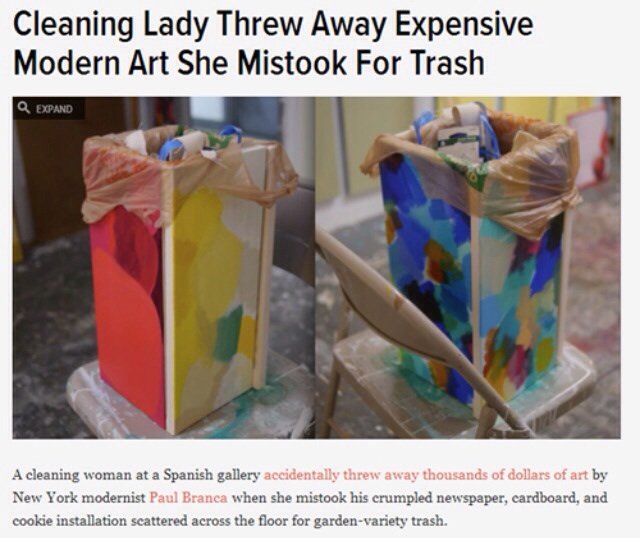
Cultural conservatism today has a hard time finding allies: from a political point of view, it seeks abstract ideals that are universal for all nations and people, or multicultural fantasies about a non-discriminatory society of different but equal groups. Academic relativism squirms in shame over the history that created its institutions and the economic interests passively follow the path of least resistance to its consumers.
Today, cultural conservatism is content with the role of the only worthy enemy of modernism - and its proponents viewed as reactionary zombies by cultural radicals. But its real bastions must be reconstructed, its walls excavated. If the cultural missionary is outdated, the same goes for the iconoclast. An ironic culture can do nothing but ridicule itself, but in reality, the fool needs a court to fulfill its role. In the age of modernism, he stands on the street and juggles.
Is cultural conservatism right-wing?
Conservatism is usually perceived as a right-wing political orientation, but in fact, both the right and left have lost most of their cultural conservative voices. If culture is to endure, cultural conservatism is essential, and if cultural conservatism is to endure, the outlines of its unpolitical nature must again be revealed.
Only in its unpolitical form, cultural conservatism can shake off the inaccurate characteristics of an 'anti-movement' as attributed by the cultural radicals. Although the latter were originally revolutionaries, the culture conservatives are not reactionaries. The cultural conservative is by no means a fundamentalist that opposes any renewal or development, if it can be justified.
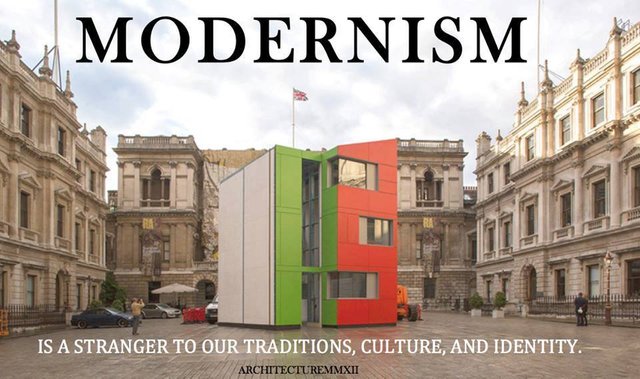
'Conservatism' is often perceived as lack of imagination or materialistic 'fear of change', but none of this is a foundation for the cultural conservative approach. Cultural conservatism is in its essence humanistic: the goal is a humans participating in humanity. It deals with humanity's eternal drives and needs. Just as culture by definition is a collective phenomena, cultural conservatism accepts that high culture is a collective project. The accusation of cultural conservatism being 'snobby' or elitist thus couldn't be further from the truth.
Culture is more vulnerable to market forces and / or political governance than other social areas. If all is surrendered to either price mechanisms or political governance, we get to where we are today: mass-produced popular culture and exhibitionistic shock art - neither utopian politics nor market forces alone are capable of managing culture. The humanist understanding realizes that responsibility lies with the individual who can't be exonerated.
 @SteemSwede
@SteemSwede
Don't forget to click the up-vote button and subscribe if you liked this article. Stay tuned for part II.
Curated for #informationwar (by @openparadigm)
Relevance:Culture War
Interesting first part. Modern Culture does seem to have reduced the value of the individual to narcissistic egotism - by creating a hollowed out collective to reflect back, rather than a purpose towards which one can make a contribution. I'm not quite ready to say that any form of individualism is incapable of creating a sense of purpose. Perhaps internal individuation in concert with supportive traditions is the way to go.
Loved the first part. So much you have said resonates with me and the place where we live. Thank you for this!